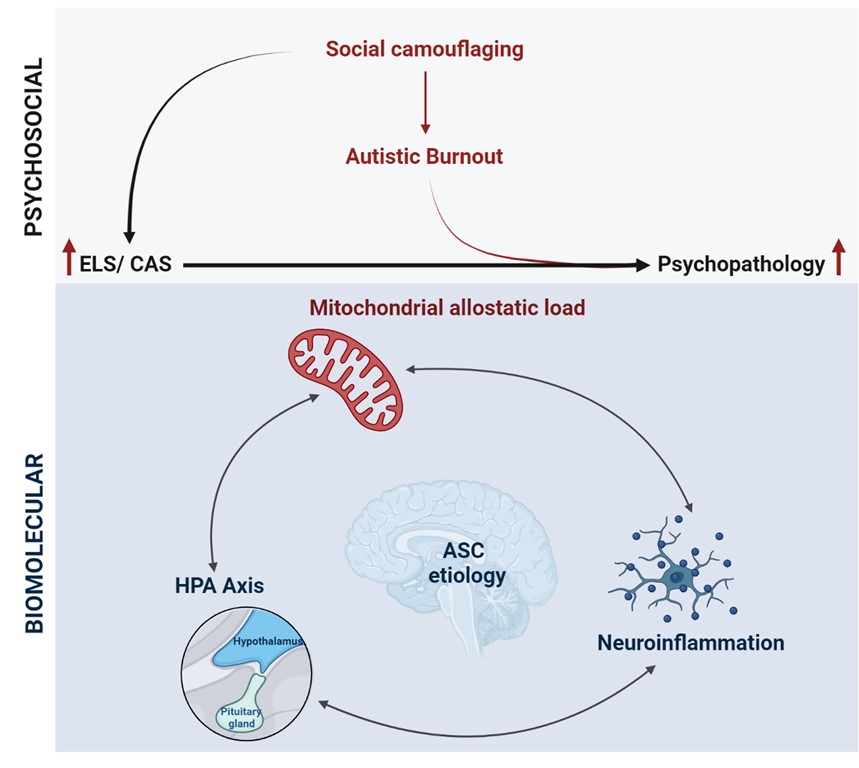Molecular research into Autism Spectrum Conditions (ASC) is undergoing an essential shift towards a biopsychosocial framework that is informed by autistic experiences. In this context, research aims are moving away from correcting external autistic behaviors and towards alleviating internal distress. ASC is associated with high rates of depression, suicidality and comorbid psychopathologies, but the underlying mechanisms that mediate this relationship are poorly understood. Here, we integrate emerging psychosocial characterizations of internal autistic experiences within a molecular framework to yield insight into the prevalence of psychopathology in ASC. We demonstrate that recent conceptualizations of social camouflaging and autistic burnout resonate closely with the accepted definitions for early life stress (ELS) and chronic adolescent stress (CAS). We propose that social camouflaging could be considered a distinct form of ELS that contributes to allostatic load, culminating in a pathophysiological state that is experienced as autistic burnout. Autistic burnout is thought to contribute to psychopathology via both psychosocial and neurophysiological mechanisms, but these remain largely unexplored by molecular researchers. Considering recent insights from converging bodies of work in molecular neuroscience, we discuss the substantial evidence implicating mitochondrial dysfunction in ASC to propose a novel role for mitochondrial allostatic load in the relationship between autism and psychopathology. An interplay between mitochondrial metabolism, neuroimmune and neuroendocrine signaling is increasingly implicated in stress-related psychopathologies and these molecular players are also associated with neurodevelopmental, neurophysiological and neurochemical aspects of ASC etiology. Together, this suggests an increased exposure to, and an underlying molecular susceptibility to, ELS that increases the risk of psychopathology in ASC. This article describes an integrative framework shaped by autistic experiences that highlights novel avenues for future research into molecular mechanisms that affect the quality of life and well-being of autistic individuals. Moreover, this framework emphasizes the need for increased access to diagnosis, accommodations, and resources to improve mental health outcomes in autism.

